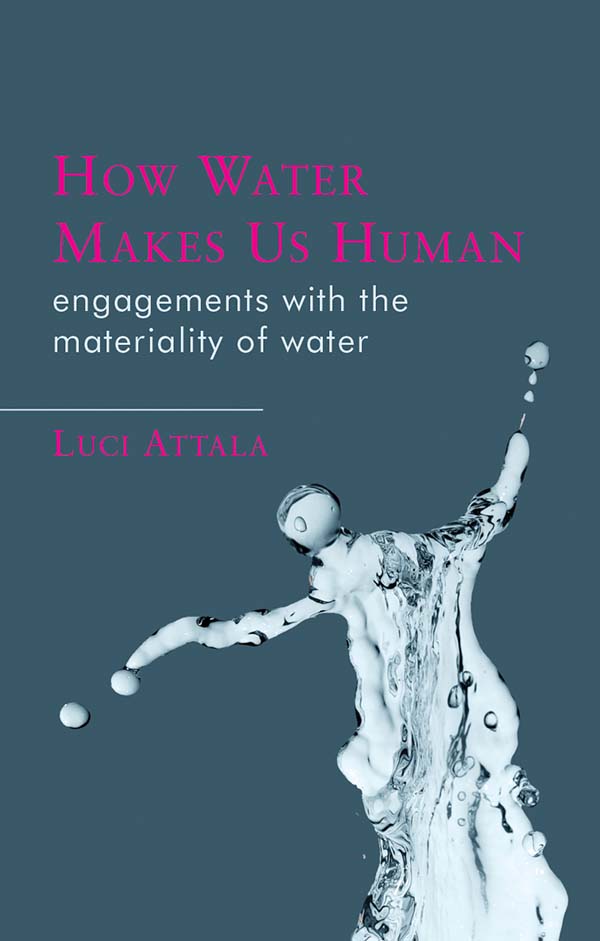How Water Makes Us Human
Engagements with the Materiality of Water
Awdur(on) Luci Attala
Iaith: Saesneg
Dosbarthiad(au): Philosophy
Cyfres: Materialities in Anthropology and Archaeology
- Ebrill 2019 · 208 tudalen ·216x138mm
- · Clawr Meddal - 9781786834119
- · eLyfr - pdf - 9781786834126
- · eLyfr - epub - 9781786834133
Mae’r gyfrol hon yn ymwneud â sut mae dŵr yn troi’n bobl - neu mewn geiriau eraill, sut mae pobl a dŵr yn llifo gyda’i gilydd ac yn siapio ei gilydd. Er bod ffocws y gyfrol ar y berthynas rhwng dŵr a phobl, mae iddi hefyd neges ehangach am berthnasoedd dynol gyda’r amgylchedd yn gyffredinol - neges sy’n dangos nid yn unig bod pobl yn ymgordeddu’n ddirfodol gyda’r byd materol, ond bod deunyddiau’r byd yn siapio, pennu a galluogi pobl i fod yn ‘fodau dynol’ fel y maent. Gan gynnig detholiad o enghreifftiau anthropolegol o Kenya, Cymru a Sbaen i ddangos sut mae materoldeb dŵr yn cyd-gynhyrchu’r ffordd mae pobl yn gallu ymgysylltu â dŵr, mae’r gyfrol hon yn defnyddio safbwyntiau trawsddisgyblaethol i gynnig a hyrwyddo dadansoddeg newydd - un sy’n annog perthnasoedd moesegol, cyfannol a chynaliadwy gyda’r byd o’n cwmpas. Mae’r dull hwn yn herio darluniau sy’n anwybyddu, sy’n osgoi neu sy’n ddall i’r materoldeb cnawdol sy’n perthyn i fod yn ddynol, i annog ail-ddychmygu byd sy’n eiriol dros gydnabod y ddynoliaeth yn gydweithredol ac yn rhan o (yn hytrach na bodoli’n unig ar) ffabrig y casgliad o ddeunyddiau a elwir yn blaned y Ddaear.
Acknowledgements
Preface
Part One
Chapter 1: Introduction
The direction and purpose: New Materialities
Materiality/Material Culture/ New Materialities
Why water?
People: bodies and water
Agency
Chapter 2: Water Behaviours: A Brief Ethnography of Water
What is water?
First light, then water
Being liquid: physics, classifications, breaking the law and transformation
How can one know water? Liquid behaviours
The importance of movement: molecular sociology
Solvents and solutions
But how does water move? Circles, cycles and snakes
The earth and the air
Water: the shape of life and when water is human
Chapter 3: Resource or Source: How to Approach Water in the Time of Climate Change
Part Two
Chapter 4: Introduction to Part Two
Chapter 5: The Giriama in Kenya: Living with Drought
Water practices: rain, roofs, rivers and water basins
Headcarrying: water shaping gendered bodies
Giriama conceptions of water
Fu ha mwenga: fluidity and identity
Watery identities
Identity solutions: blending place, power and water
MaKaya: home from home
Giriama waters and authenticity: understanding the materiality of water
Chapter 6: Lanjaron, Spain
Slow water: glaciers, ice and snow
The Moorish influence: hydrologers
Invisible waters
Not all waters are equal
Mineral water: healing and destruction
Change: festivities and water
The ritual
Chapter 7: Welsh Water: The Resourcefulness of Water
Establishing Welsh water: then and now
The language of water
Discourses of deluge
Water relationships, powers and control
Memories of floods and flooding
Water and memory: remember Tryweryn
Yma o hyd (Still here)
Chapter 8: Concluding Remarks
References
Index


